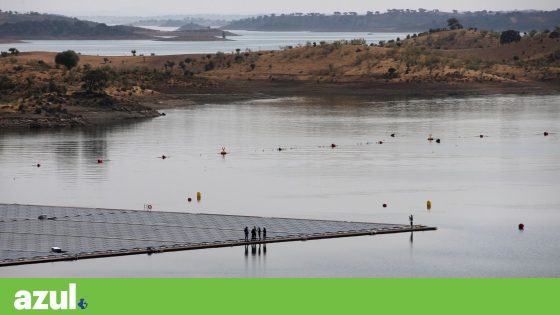This week, Portugal celebrated the 30th anniversary of the Empresa de Desenvolvimento e Infraestruturas de Alqueva (EDIA). During the event, a new economic impact study highlighted the significance of the Alqueva project, revealing it generates an impressive €339 million in annual tax revenue. Is Alqueva truly the lifeline for the Alentejo region, or is it merely a façade for deeper issues like population decline?
- 30th anniversary of EDIA celebrated in Beja.
- Economic impact study reveals €339 million annual revenue.
- Alqueva project generates €2910 million since 1995.
- Minister emphasizes Alqueva's success, counters depopulation claims.
- Transvases proposed as solution for water scarcity.
- Inter-basin water transfer system to be developed.
Alqueva Project: A Boon or a Burden for Alentejo’s Future?
Is the Alqueva project truly a success story for the Alentejo region? While it has brought substantial economic benefits, the ongoing population decline suggests deeper challenges remain. This paradox raises questions about the project’s long-term impact on local communities.
Understanding the Economic Impact of Alqueva
The Alqueva project, with a total public investment of €2.446 billion, has generated an estimated €2.91 billion in tax revenue since its inception in 1995. This impressive return indicates the project’s potential to boost local economies. However, the study presented by EDIA reveals that the region still grapples with depopulation, raising concerns about the effectiveness of such investments in revitalizing rural areas.
Key Economic Benefits of the Alqueva Project
The Alqueva project has transformed the Alentejo landscape and economy. Here are some key benefits:
- Annual tax revenue of €339 million supports public finances.
- Investment has created thousands of jobs in agriculture and tourism.
- Improved irrigation systems enhance agricultural productivity.
- Boosted infrastructure development, including roads and utilities.
Challenges: Population Decline in Alentejo
Despite its economic successes, the Alqueva project has not halted the population decline in Alentejo. Many residents continue to leave for urban areas in search of better opportunities. This trend raises questions about the sustainability of rural communities and the effectiveness of current strategies to retain residents.
The Future of Water Management in Portugal
Water management strategies, including proposed inter-basin transfers, aim to address water scarcity in southern Portugal. These initiatives could support agricultural needs and tourism, but they also face environmental scrutiny. How will these plans balance economic growth with ecological preservation?
In conclusion, while the Alqueva project has undeniably contributed to the economic landscape of the Alentejo region, its ability to combat population decline remains in question. As Portugal navigates these complexities, the future of rural communities hangs in the balance.































